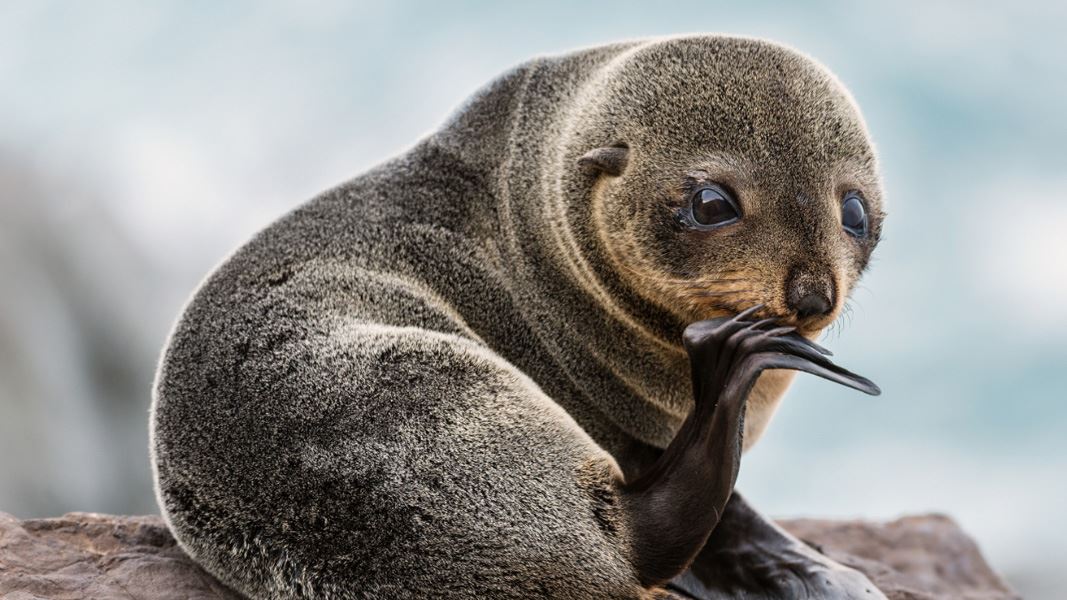Archived content: This media release was accurate on the date of publication.
Date: 16 August 2023
Reports are flooding into the Whanganui DOC office of seal sightings.
“We call it seal silly season,” says Marine Science Advisor Laura Boren. “Despite it happening every winter, it’s always a surprise for people to come across seals in unexpected locations.”
“Encountering seals this way is actually reflects the strong recovery of our seal populations, so enjoy the unique experience – from a safe distance.”
Young kekeno/seals, along with males of any age, leave their breeding colonies between May and September, making it prime season to spot them in odd places.
Although kekeno are marine mammals, they spend much of their time basking on rocky shores and occasionally explore much further inland.
"People’s protective instincts come up when they see young pups alone, or seals doing normal seal things like regurgitating, sneezing, or crying.”
“These are all typical behaviours for seals. Please call the DOC hotline only if they are in immediate danger, severely injured, or tangled in rubbish.”
Those frequenting beaches this seal silly season can help keep kekeno safe by having dogs under control.
“If you’re walking your dog where seals are regularly seen, or if you see a seal – put your dog on a lead until you are well away.”
DOC’s Lead the Way programme offers guidance for dog behaviour around coastal wildlife.
If you see a seal which is severely injured, being harassed, or in obvious danger, call 0800 DOC HOT (0800 362 468).
Contact
For media enquiries contact:
Email: media@doc.govt.nz
